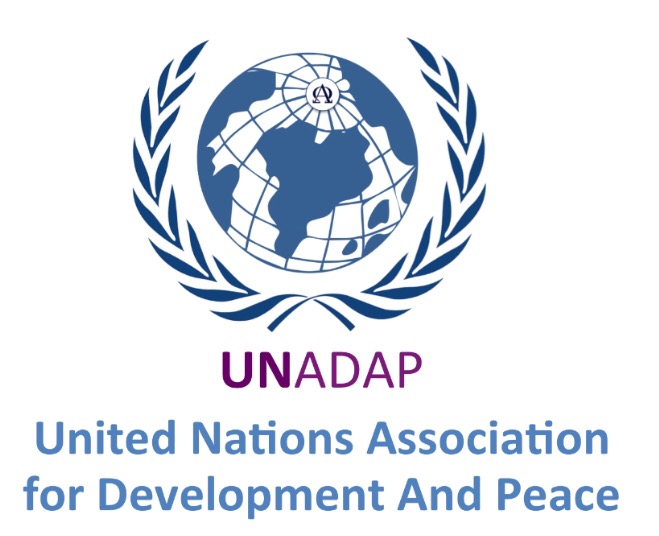OUT OF DARKNESS AND INTO LIGHT | Story of Azima, a 16-year old girl living with HIV
- UNADAP | United Nations
- Dec 1, 2022
- 4 min read
"I dream about a day when people in my country will stop seeing us, people living with HIV, as threat to society -" Azima

I was born prematurely at seven months. The doctors told my mother that I probably wasn’t going to survive, so she left me in the hospital. At some point during my stay in the hospital I was given a blood transfusion. That was how I got HIV.
When I was 14 days old my grandmother discovered I’d been born and came to get me. She has brought me up ever since.
As a child, I was always sick. I was very short and thin, my teeth kept falling out. I was hospitalised many times but no one knew what was wrong with me. I was passed from hospital to hospital. I was sent to a hospital for disabled children. They thought I might have leukaemia so they sent me to a cancer hospital. There I was tested positive for HIV and was sent to the Tashkent Medical Institute.
In hospital, I had several courses of treatment for other illnesses, but it wasn’t until I was 9 years old that I started anti-retroviral therapy (ART) for HIV. Initially I accepted it well, but then I stopped growing properly. A new drug was added which affected my ability to walk.
I was put on a ward with adult patients – they terrified me and my grandmother: “You won’t live long,” they told me, “You’ll die. And you wouldn’t have got this disease if you’d been a good girl!” The health workers tried to explain things to my grandmother but they never talked about things with me.
After talking to those patients, I got really depressed. When I got out of hospital, I started to isolate myself from my friends. I didn’t want to talk to anyone. I stopped going to school. I didn’t know anyone else of my age who had HIV so I truly believed it was only me, and those adult patients who’d told me were right that I was going to die.
At this point, my grandmother was told about a centre for children with HIV, being supported by UNICEF. “There’s a group there that will support her,” she was told. I’d started asking my grandmother lots of questions, “Is it true? Am I really going to die? Why did I get this?” She visited the centre and when she came back she told me that all my questions would be answered there.

I remember it was close to New Year. When I arrived at the centre, there was a group of girls making decorations. I got chatting with them, but I had no idea they were HIV positive like me. As I said, I thought I was the only one! I don’t remember what questions I asked the health workers specifically, but I do remember being told that there was no need to be scared any more. I was so relieved.
Initially, I came to the centre every three months. I would have liked to come more but we lived 100 kilometres from the city centre, and my grandmother wasn’t wealthy. When I did come though, I’d share my life and my stories with the other girls. “Where are you from? How is your treatment going? How did you get infected?” It was the only place I could talk freely about being HIV positive. Seeing how friendly they all were, how they met the world with a smile, made me want to go to the centre more often. I started to engage with life again. I felt, at last, that I had escaped from the darkness into the light. My grandmother and I were no longer alone in dealing with HIV. We were surrounded by supportive people.
I trained as a peer supporter. It’s given me a lot of confidence. Health workers can give information about why you must take your drugs, but someone who has experienced HIV can really explain how to overcome the challenges. The biggest one is dealing with the stigma of the disease, not just other people’s views, but all the questions; “Why did this happen to me? What did I do to deserve this?”
Anywhere I go, I want to change the way people look at us – children living with HIV. I want to remove the stigma they have in their minds. With UNICEF’s support, in one of the charity fairs, I stood next to a board which read – ‘I am HIV positive. Hug me!’ I was so happy when hundreds of people stopped, read the board, looked at me and gave me a warm hug. I also saw some people who looked at me with a strange expression and walked on. They didn’t know what to do. I felt sad for them. The fear they hold in their minds is born out of the darkness of ignorance.
I’ve been coming to the centre for seven years now. In that time, they have been training adolescents like me to train others to support children with HIV. Thanks to the centre, I feel more energetic. Now, I accept HIV and ART as part of my life and I wouldn’t have it any other way. If more people could see what goes on at the HIV day care centre, perhaps they too wouldn’t see HIV as so much of a problem.
Copyright: UNICEF Stories, By Alice Allan






Comments